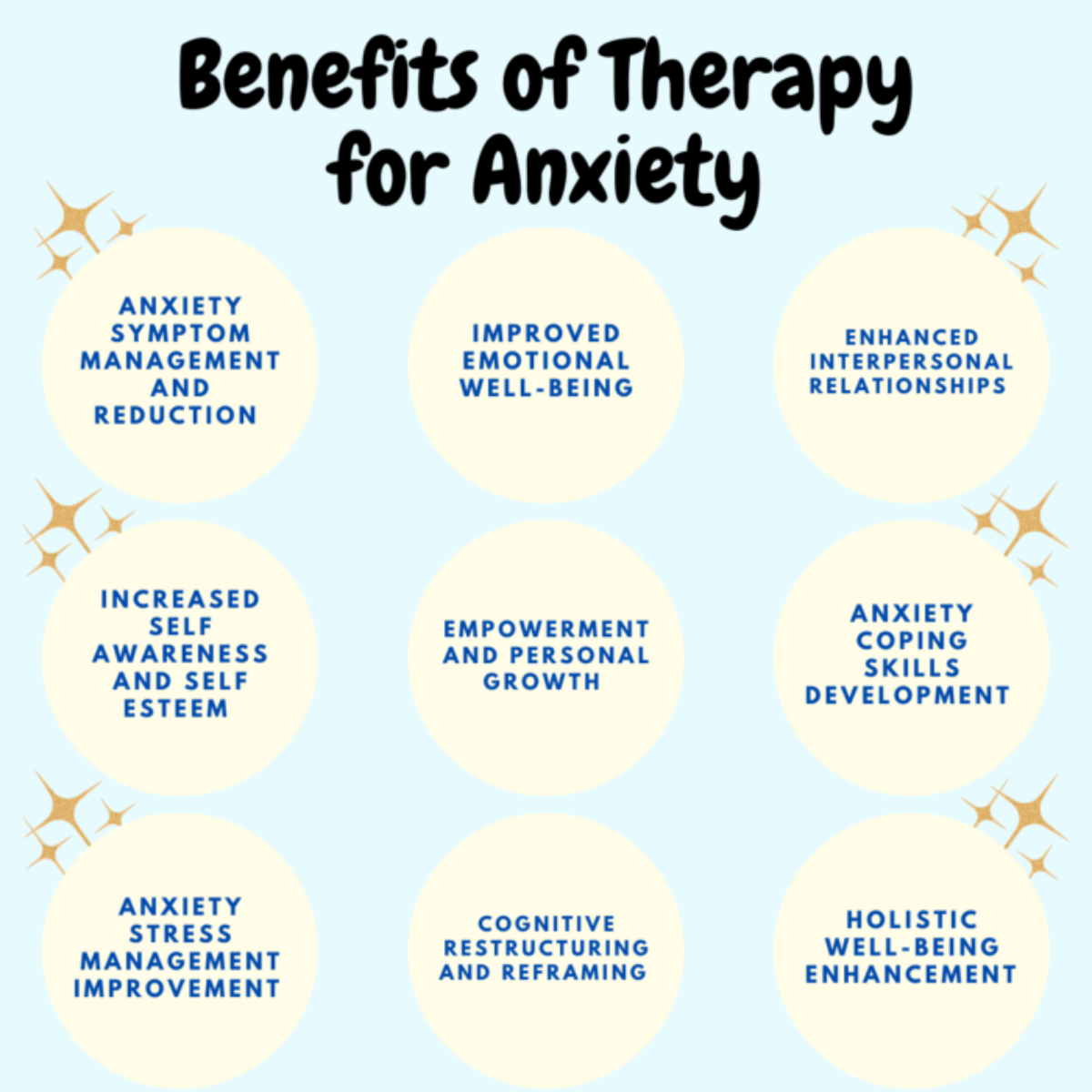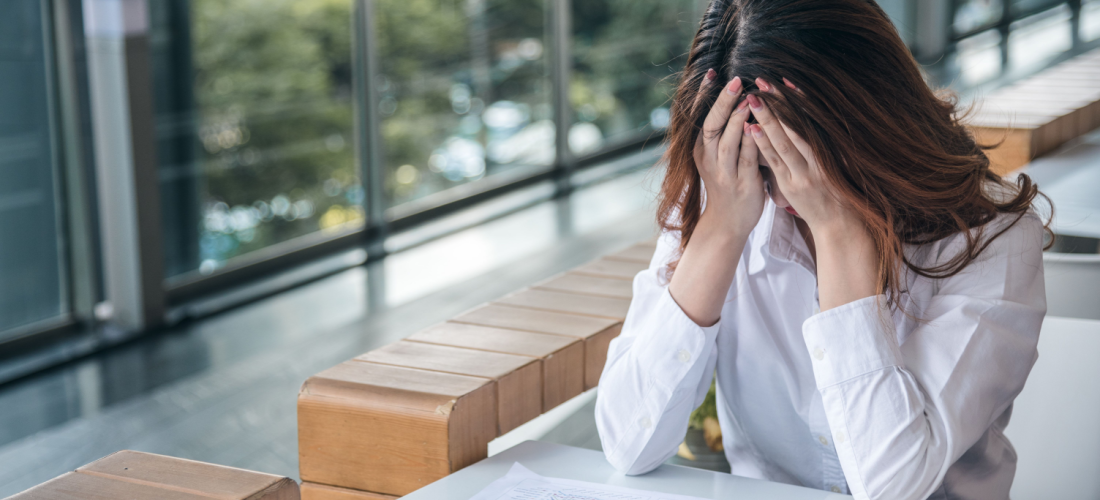Discovering Various Methods in Coaching for Anxiety Disorder for Enduring Change
When tackling stress and anxiety problems, it's necessary to check out a range of therapy methods. Each technique offers unique insights and tools to help you handle your signs and symptoms effectively. You might find that integrating techniques can yield the very best results. However, comprehending the nuances of these methods is key to cultivating lasting change. What if the appropriate mix could release a new degree of psychological well-being for you?
Understanding Anxiousness Problems: A Short Summary
Anxiety problems, which impact millions of individuals worldwide, can greatly influence life. You might experience frustrating feelings of fear or stress that seem uncontrollable. These sensations can bring about physical signs like a racing heart, sweating, and even dizziness. Usual kinds of anxiety conditions consist of generalized anxiety condition, panic attack, and social anxiousness disorder. Each has one-of-a-kind indications, yet they all share a tendency to disrupt your regular and relationships.Understanding the source of your stress and anxiety is vital. It could stem from genes, brain chemistry, or life experiences. Recognizing your triggers can aid you manage your responses much better. It is very important to bear in mind that you're not the only one in this struggle. Many individuals face similar difficulties, and seeking help is a solid action toward sensation much better. By learning more about anxiousness problems, you're already on the path to understanding and managing your problem better.
Cognitive-Behavioral Therapy: Challenging Unfavorable Thought Patterns
In Cognitive-Behavioral Therapy, you'll begin by recognizing the unfavorable thought activates that add to your stress and anxiety. You'll function on replacing them with more positive options as soon as you recognize these thoughts. Together, you'll construct effective coping methods to aid handle your anxiety in day-to-day scenarios.
Identifying Unfavorable Idea Triggers

Recognizing the specific triggers behind your unfavorable thoughts can be necessary in taking care of anxiety when you come across minutes of distress. Start by focusing on situations that prompt sensations of worry or fear. Is it a crowded space, an approaching deadline, or a conversation with particular people? Take down these instances in a journal. This will certainly help you recognize patterns in your thinking. Notification physical feelings that accompany your adverse thoughts, like a racing heart or rigidity in your chest. By pinpointing these triggers, you obtain understanding into what's sustaining your stress and anxiety. Comprehending these connections is the very first step in challenging those ideas and eventually restoring control over your emotional responses.
Replacing Ideas With Positives
Challenging adverse thought patterns is a crucial action in changing your state of mind and decreasing anxiousness. You may usually discover on your own trapped in cycles of insecurity or catastrophic thinking. Instead of letting these ideas dictate your sensations, practice replacing them with favorable affirmations or reasonable options. When you assume, "I can not manage this," shift it to, "I can take care of obstacles one action at a time." This easy modification can greatly affect your mood. Frequently recognizing and responding to these adverse ideas aids produce a healthier internal dialogue. Keep in mind, it requires time and initiative, yet continually exercising this technique can cause long lasting modification, equipping you to face stress and anxiety with renewed confidence and resilience.
Building Coping Approaches With Each Other
Changing adverse ideas is just the start of taking care of stress and anxiety properly. To produce long-term change, you require to build coping techniques that empower you. Cognitive-Behavioral Treatment (CBT) aids you determine and challenge those unhelpful thought patterns. Together, you and your therapist can check out exactly how these thoughts impact your sensations and behaviors.Start by creating sensible methods, like journaling or mindfulness exercises, that enable you to confront anxiety head-on. When you encounter your anxieties slowly, you'll learn to react differently.

Mindfulness and Acceptance-Based Approaches: Cultivating Present-Moment Recognition
As you navigate the complexities of anxiety, including mindfulness and acceptance-based methods can substantially boost your ability to grow present-moment understanding. By concentrating on the right here and currently, you'll find that you can observe your thoughts and sensations without judgment (Counseling services for anxiety). This technique assists you recognize your anxiety without feeling overwhelmed by it.Engaging in mindfulness workouts, such as deep breathing, body scans, or guided meditations, enables you to ground on your own in your existing experience. Acceptance-based techniques motivate you to welcome your feelings as opposed to battle versus them. They shed their power over you.Incorporating these practices into your day-to-day routine can transform exactly how you respond to anxiousness when you approve your feelings. You'll create durability and discover to navigate demanding circumstances with greater simplicity. Inevitably, cultivating present-moment awareness lays the foundation for lasting modification, equipping you to lead a much more satisfying life
Direct Exposure Treatment: Challenging Fears Slowly
Exposure treatment aids you challenge your worries in a progressive means, making it much less frustrating. You'll discover methods to deal with anxiety-provoking circumstances detailed, while likewise developing coping strategies to manage your reactions. This technique equips you to take control and get redirected here reduce stress and anxiety over time.
Steady Direct Exposure Methods

When encountering anxiousness, slowly confronting your anxieties can be a powerful way to gain back control. This method, understood as gradual exposure, includes slowly exposing on your own to the situations or objects that trigger your stress and anxiety. Begin with much less challenging situations and gradually work your means up to even more tough ones. If you're afraid of public speaking, you could start by speaking in front of a mirror, after that progress to sharing ideas with a friend, and at some point address a tiny group. Each step aids desensitize you to the worry, developing your self-confidence in time. Bear in mind, it's important to rate yourself and celebrate little success as you move with this procedure, reinforcing your capability to take care of anxiety successfully.
Structure Coping Strategies
Building effective coping techniques is necessary for taking care of anxiety, particularly as you face your anxieties slowly - Counseling services for anxiety. One effective technique is direct exposure treatment, where you begin by encountering your concerns in a regulated way. Begin with less daunting circumstances and slowly function your way up to more tough circumstances. This steady direct exposure aids desensitize you to anxiousness activates, making them much less overwhelming.Incorporate leisure methods, such as deep breathing or mindfulness, to soothe your mind during exposure. Track your development, commemorating tiny triumphes along the way to improve your self-confidence. Keep in mind, it's fine to take your time; the goal isn't excellence but stable enhancement. By developing these techniques, you'll encourage yourself to navigate anxiousness and embrace life extra completely
Psychodynamic Treatment: Discovering Root Reasons of Stress And Anxiety
Psychodynamic therapy discovers the subconscious mind, exposing the source of your anxiety. By analyzing your thoughts, feelings, and previous experiences, this method helps you reveal underlying disputes and unresolved concerns that may contribute to your present anxiousness. You'll work with a therapist to investigate childhood experiences, partnerships, and emotional patterns that shape your feedbacks today.As you get insight right into these much deeper layers of your mind, you'll start to identify exactly how past events affect your present habits. This understanding can lead to catharsis, permitting you to process emotions you could have suppressed.Through the restorative partnership, you can also recognize defense reaction that may have established over time, using a more clear Licensed therapist for anxiety path to alter. Ultimately, psychodynamic treatment equips you with the tools to resolve your anxiety at its core, advertising lasting makeover in your emotional wellness.
Integrative and Alternative Approaches: Incorporating Techniques for Greater Effectiveness
Incorporating various restorative strategies can boost your journey toward handling anxiousness more efficiently. By incorporating components from cognitive-behavioral therapy, mindfulness practices, and alternative techniques, you can develop a personalized technique that addresses your one-of-a-kind demands. You may utilize cognitive-behavioral techniques to challenge negative idea patterns while including mindfulness workouts to ground on your own in the present moment.Additionally, checking out alternative methods such as yoga or meditation can promote relaxation and reduce stress and anxiety signs. This mix allows you to establish better self-awareness and resilience.Experimenting with these diverse approaches can assist you find what reverberates most with you. Remember, it has to do with locating a synergy that functions, as opposed to staying with a single technique. This integrative method not just uses instant relief yet likewise fosters long-term abilities for handling stress and anxiety, empowering you to redeem control over your life.
The Function of Support Equipments: Structure Durability With Connection
While it could seem that managing anxiousness is a singular journey, having a strong support group can play an essential duty in your durability. Surrounding on your own with compassionate good friends, household, or support system develops a risk-free space where you can honestly share your feelings and experiences. When you attach with others, you remind on your own that you're not alone in this struggle.These partnerships provide encouragement and can give useful coping approaches that have functioned for others. It's additionally a chance to get perspective; good friends can aid you see scenarios in different ways, lowering sensations of isolation.Moreover, psychological assistance promotes a feeling of belonging, which can significantly alleviate stress and anxiety signs and symptoms. By leaning on your support system, you can build resilience and deal with difficulties extra properly. Remember, getting to out for help is an indication of toughness, and it can make all the distinction in your journey towards handling anxiety.
Regularly Asked Concerns
What Are the Common Symptoms of Stress And Anxiety Disorders?
You might experience uneasyness, fatigue, difficulty concentrating, irritability, muscular tissue stress, and rest disturbances. Physical symptoms can include rapid heart beat, sweating, and shivering. Identifying these indicators early can aid you look for ideal assistance and therapy.
For How Long Does Treatment Typically Last for Anxiety Disorders?
Therapy for anxiety disorders typically lasts anywhere from a few weeks to numerous months. It actually relies on your specific demands, progress, and the strategies your specialist makes use of to assist you handle your anxiety effectively.
Can Medicine Be Utilized Alongside Treatment for Anxiety?
Yes, medicine can most definitely be utilized together with therapy for stress and anxiety. Incorporating both techniques often enhances treatment efficiency, helping you take care of signs while exploring underlying concerns through therapy (Counseling services for anxiety). Always consult your healthcare service provider for customized recommendations
Are There Self-Help Strategies for Taking Care Of Anxiousness?
Yes, there are numerous self-help approaches for taking care of anxiousness. You can exercise mindfulness, participate in routine workout, keep a well balanced diet plan, establish a regular, and use deep breathing methods to assist minimize anxiety symptoms successfully.
Exactly how Do I Know if I Need Professional Assistance for Anxiousness?
